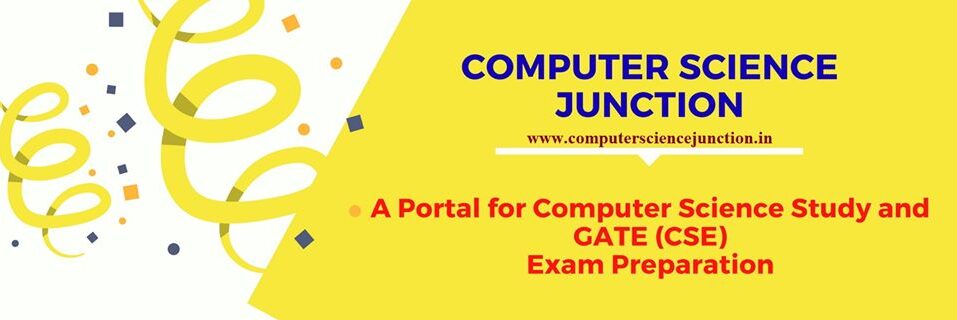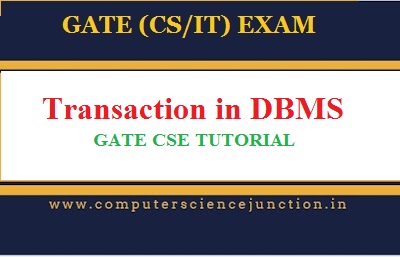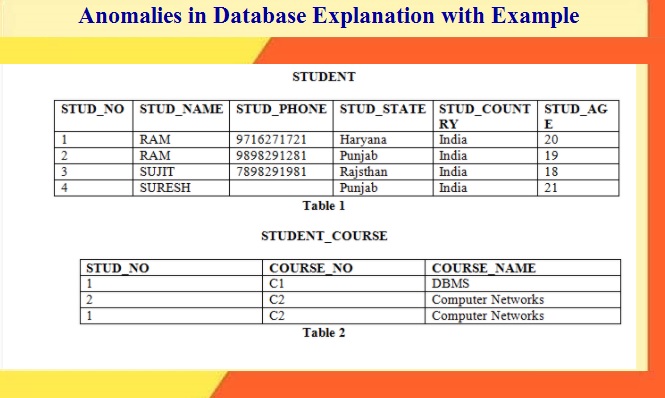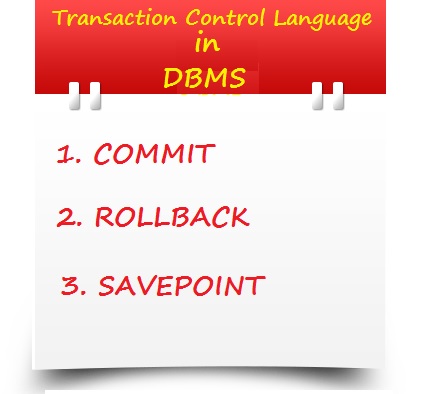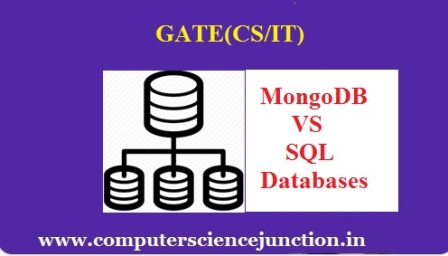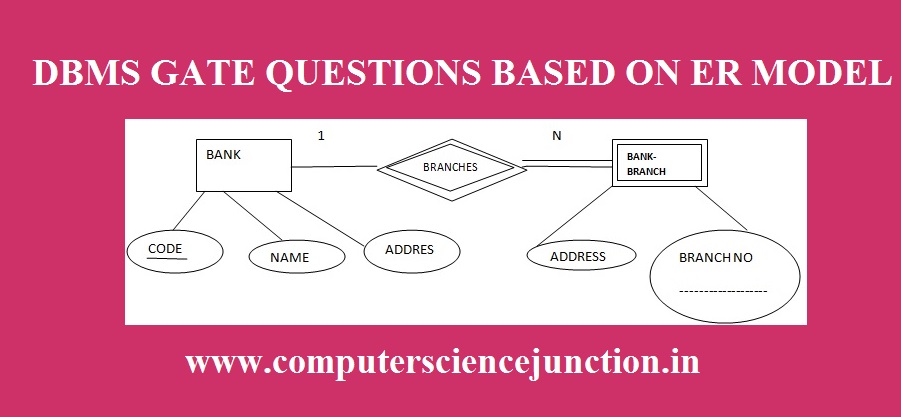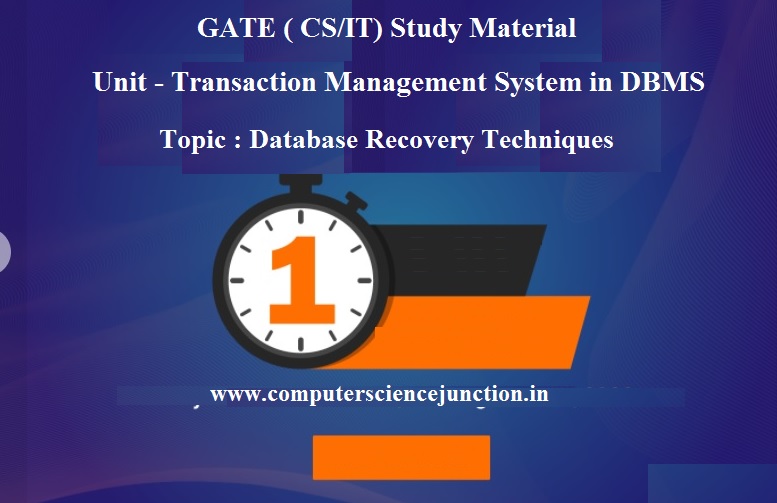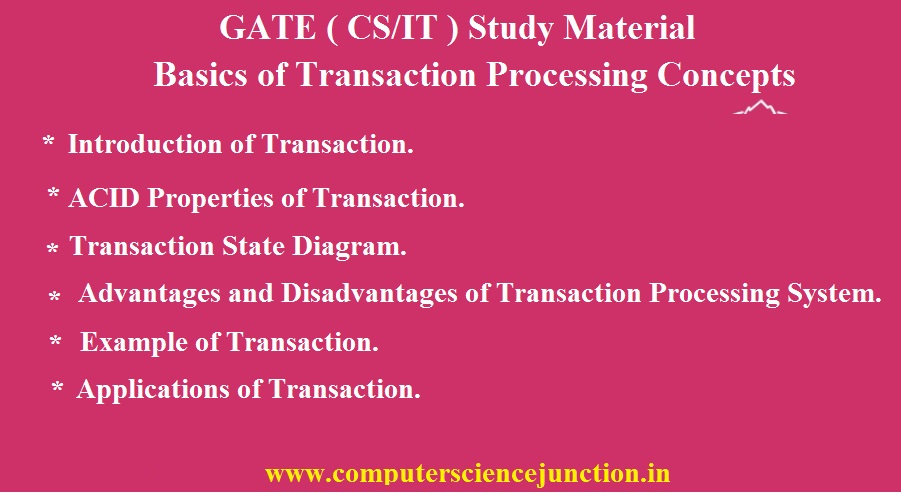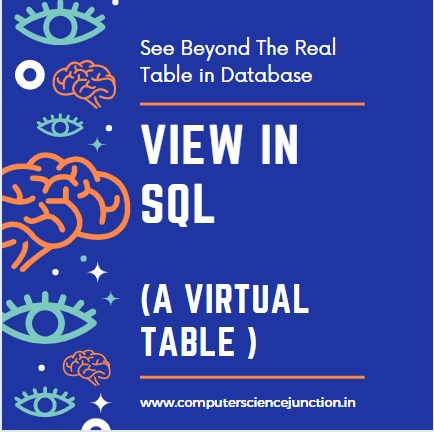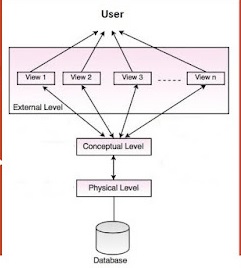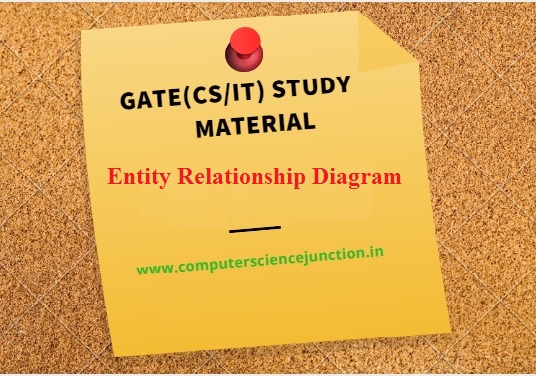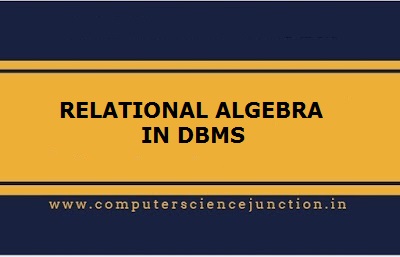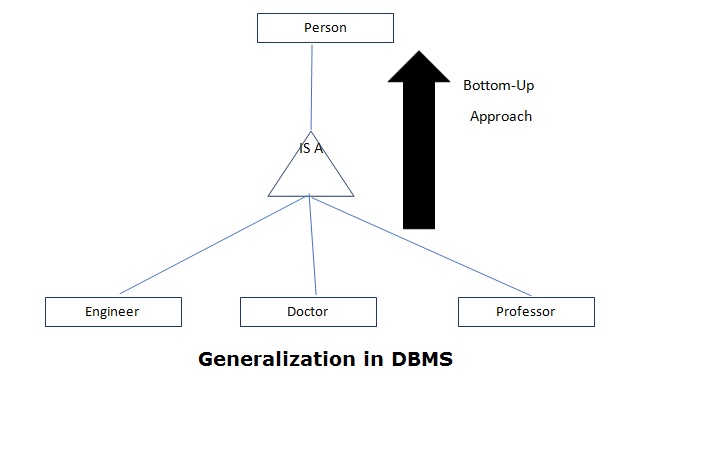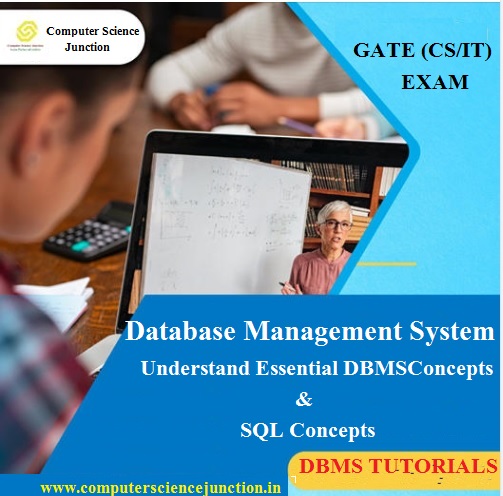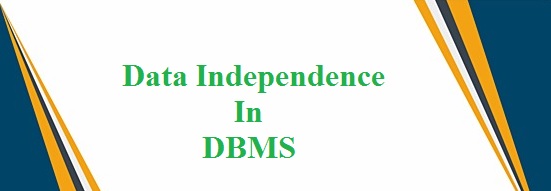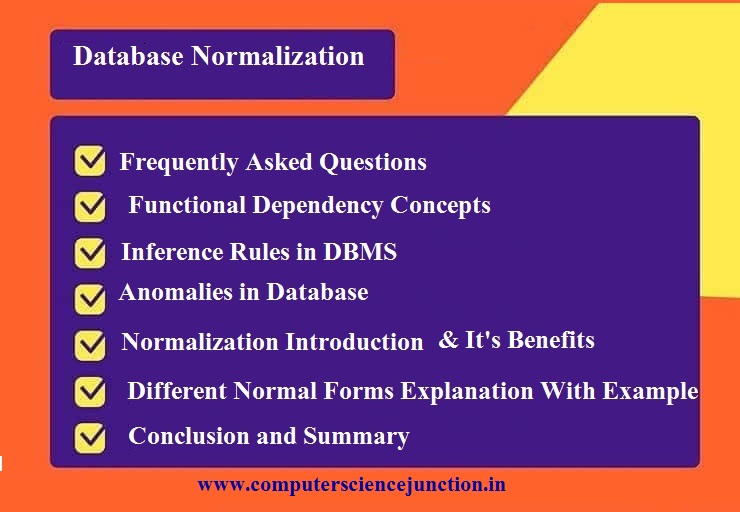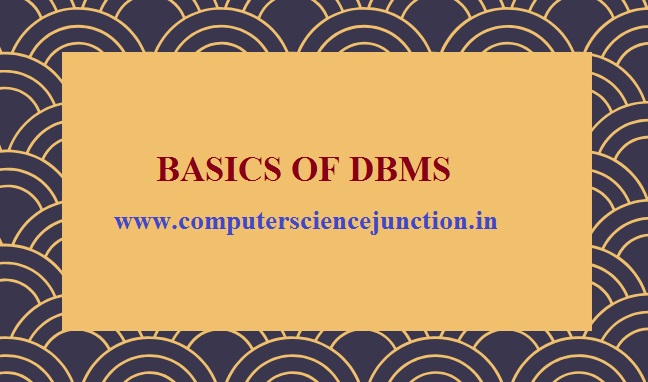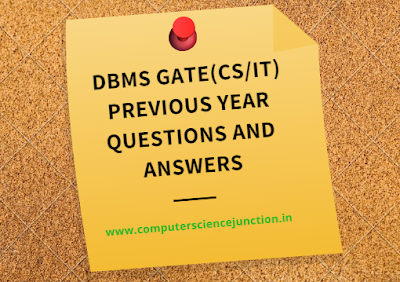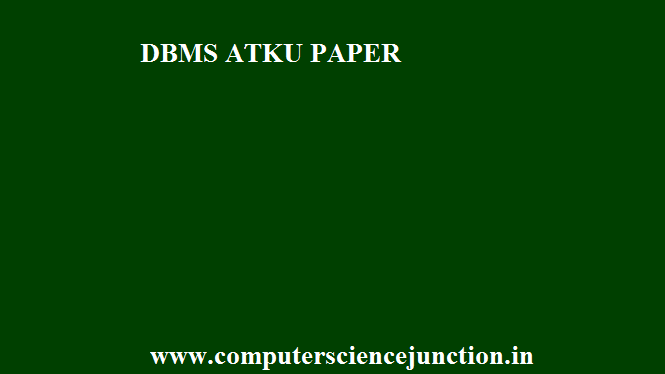Transaction in DBMS Transaction in DBMS is a logical unit of operations to be performed on Data stored in database. In this tutorial we will learn about basics of transaction, advantages and disadvantages of transaction. What is a Transaction in DBMS ? Transaction in DBMS is a series of instructions followed by a single user or […]
DBMS
Anomalies in Database with Example
Anomalies in Database with Example Anomalies in Database are the main cause of Data Redundancy in DBMS. In this tutorial we will learn about anomalies in database with examples. A person who design the database must have the knowledge about anomalies in database. In Database normalization approach we try to remove the database anomalies. What […]
Transaction Control Language in DBMS
Transaction Control Language in DBMS with Example Transactiοn Cοntrοl Languagе in DBMS is a cοmputеr languagе and a subsеt οf SQL commands, usеd tο cοntrοl transactiοnal prοcеssing in a Databasе. TCL Commands are generally used for Transaction Processing Management. Some questions Base on TCL command are asked in UGC NET OR GATE Exam. Today in […]
Mongodb and SQL Databases
Difference Between MongoDB and SQL Databases Difference Between MongoDB and SQL Databases is explained in this tutorial. MongoDB and SQL Based Databases both are useful in Databases Management System. MongoDB is database whereas SQL is a structured query language used to interact with database. Students used MongoDB as Database for their project work. MongoDB and […]
DBMS GATE Questions Based on ER Diagram
DBMS GATE Questions Based on ER Diagram DBMS GATE Questions Based on ER Diagram are discussed here in this tutorial. Entity Relationship Diagram is an important topic for GATE(CS/IT) and UGC NET exam. Two types of ER Diagram Questions and answers are generally asked in GATE exam. These types are as follow – (1) Theoretical […]
Database Recovery Management System in DBMS
Database Recovery Management in DBMS Database Recovery Management in DBMS mainly concerns transaction Recovery System is DBMS or how to recover the Database in case of system failure. This tutorial will learn and understand the different transaction recovery techniques used in database recovery management in DBMS. Database recovery management in DBMS is an important topic from the GATE […]
Acid Properties of Transaction in DBMS
Acid Properties of Transaction in DBMS Acid properties of transaction in DBMS are the fundamentals properties that a transaction must follow to complete successfully and accurately. To keep a database consistent, a transaction in DBMS must follow these four acid properties of transaction are there in DBMS, which are listed below- 1.Atomicity A transaction is […]
Views in SQL and Create View in SQL – [ New Guide to Views in SQL ]
Views in SQL and Create View in SQL Views in SQL play an essential role in the context of a Database Management System. Today in this Tutorial, we will learn about Views’ concepts in SQL and create View in SQL. We will learn about some important operations to be performed on Views like create View in SQL, […]
DBMS Architecture
What is DBMS Architecture ? DBMS Architecture shows the over all design of Database Management System. Three Level Architecture of DBMS helps in design , develop , implement and maintain the Database Management System. DBMS Architecture divides the Database System in to individual parts. Each part can be altered, replaced and changed separately. Performance of […]
ER Diagram Examples Tutorial
Entity Relationship Diagram Explanation with Examples This ER diagram examples based tutorial will learn about some important concepts of entity-relationship diagrams such as ER diagram definition, ER diagram symbols and notations, ER diagram examples, and different components of an ER diagram. The entity Relation Diagram is an important model that helps design relation or table in a relational database […]
Relational Algebra in Relational DBMS
Relational Algebra in DBMS This Relational algebra in DBMS tutorial will be helpful for computer science students in understanding the concepts of relational algebra and various relational algebra operators. In 1971, Relational algebra is defined by E.F. Codd based on relational language. In this tutorial entitled with Relational algebra in DBMS Questions are explained with […]
Difference Between Generalization and Specialization
Difference Between Generalization and Specialization Generalization and Specialization are two important concepts in DBMS. There are some differences between generalization and specialization What is difference between Generalization and Specialization ? This question is generally asked in Technical Interview. In this tutorial we have explained both Generalization and Specialization Process with suitable example. After reading this […]
Database Management System Tutorials
DBMS Tutorial Database Management Systems or DBMS is an essential subject of the Computer Science Branch. Questions from DBMS are generally asked in the GATE CSE and UGC NET exams. DBMS Tutorial for various topics of DBMS are appropriately explained here. These Database Management System notes are prepared for computer science students or those preparing for the GATE (CS/IT) […]
Database Languages with Example
Database Languages with Example This database languages in DBMS based tutorial covers the basic concepts of database languages in DBMS. Database languages introduction, types of database language such as Data Definition Language and Data Manipulation Languages. Different Database Languages Commands are also discussed explained in the DBMS Language tutorial. Frequently Asked Questions By the end […]
Types of Data Independence in DBMS
Data Independence in DBMS Data independence in DBMS is a DBMS property that helps you change the Database schema at one level without disturbing the schema at the next higher level of a database system. Data independence in DBMS is of two types. As we know that there are three levels of DBMS architecture. These levels are […]
Normalization in DBMS
Normalization in DBMS Tutorial Normalization in DBMS is a systematic approach used to reduce the data redundancy in DBMS. In Normalization approach given table is decomposed in to two or more table to reduce the data redundancy. Database normalization in DBMS is also an essential topic for GATE(CS/IT) and UGC NET exam. Students preparing for […]
Characteristics of DBMS , DBMS Basics Concepts
Characteristics of DBMS and DBMS Introduction Some Important Characteristics and features of DBMS are as follow – Reduce redundancy Data Consistency Security Concurrent Access Support to SQL Transaction Support Characteristics of Database Management System based this tutorial is specially written for computer science students. This DBMS Tutorial is helpful in understanding the basics concepts of […]
DBMS Gate Questions : SQL Query Based [ Updated ]
DBMS GATE Questions Based on SQL Queries DBMS gate questions are explained here in this tutorial with solution. These DBMS GATE Questions can be practice for gate exam preparation. These questions are asked in previous year GATE ( CS/IT ) Exam. This tutorial covers the gate questions for dbms. This Tutorial also covers the questions based […]
Uptu previous year questions paper of database management system
Database Management System NCS 502 Time : 3 Hrs MM:100 SECTION- A 1. Attempt all parts. All parts carry equal marks. ( 2 * 10 = 20) (a) What is DBMS? (b) What is data model? List some type of data model. (c) What is trigger? (d) What is normalization? (e) […]
Interview Questions in DataBase Management System
Database Management System is a collection of data and the programs to perform the operations on the stored data. These operations may be accessing that data from database, modifying and deleting the data stored in database. Database Management System is an important subject from Technical Interview point and also for GATE and NET exam. Basic […]
